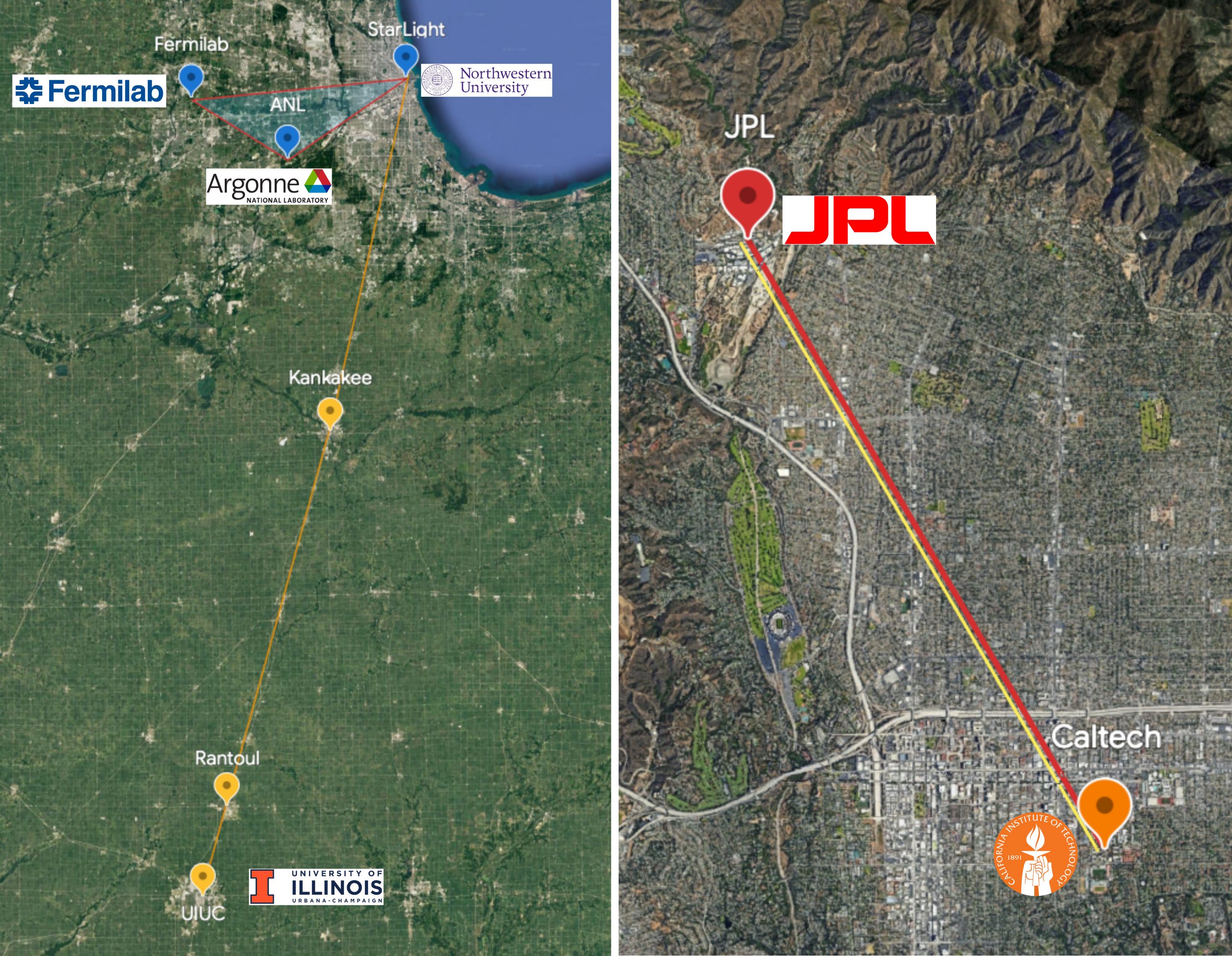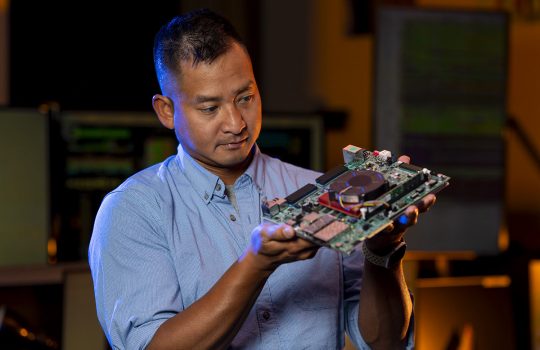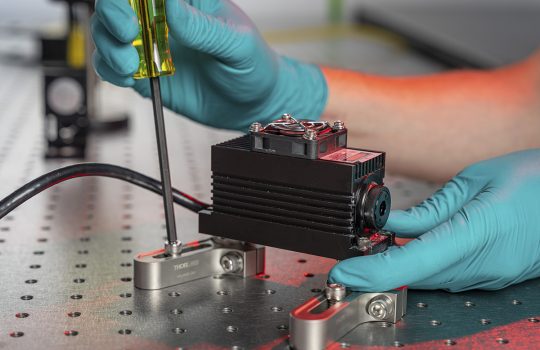The U.S. Department of Energy’s Fermi National Accelerator Laboratory will receive a total of $9 million in funding over three years for its Advanced Quantum Networks for Scientific Discovery (AQNET-SD) project. AQNET-SD will build upon previous groundbreaking work toward establishing national-scale quantum networks by using sophisticated techniques to push the technology to its limits. The funding is provided by the DOE Office of Science Advanced Scientific Computing Research program.
DOE is advancing research in quantum networks that can lead to a nationwide quantum internet which enables the development of new capabilities and enables new applications beyond what can be achieved with classic networks. The networks are aimed at making it possible to interconnect multiple quantum devices and realize a diverse set of protocols that enable the amount of precision required when taking measurements and scaling up quantum computers. Essentially, this work can help transform science, the economy and everyday life; the science enabled by the new networks could lead to faster cars, new medicines and improved manufacturing materials.
Transmitting quantum data across long distances is a challenge. AQNET-SD researchers will develop several technologies and protocols to establish and optimize a quantum network between Fermilab and DOE’s Argonne National Laboratory using quantum-encoded photons, the particles that transmit quantum information. They will also demonstrate the feasibility of the coexistence of quantum and classic technologies, which increases efficiency when the best-suited technology performs any given task. Finally, researchers will deploy a hybrid free-space optical fiber network, which offers highly secure, high-speed, low-latency, low-power data transfer. All of these efforts will help advance quantum communication and computing technologies by sharing the future of quantum computing.

Envisioned extensions of an operating quantum network for the AQNET-SD project. Left: The network includes several Chicagoland quantum nodes at Fermilab, Argonne, Starlight (a hub for national and international research and education networks in Chicago), and University of Illinois at Urbana-Champaign via links to Kankakee, Illinois, and Rantoul, Illinois. Right: Quantum links (both free-space and fiber) between Caltech and Jet Propulsion Laboratory. Image: IEQNET collaboration
“We are taking advantage of Fermilab’s expertise in systems engineering integration, advanced controls, readout electronics and ultra-sensitive sensors, which are all necessary for conducting successful particle physics experiments and applying them toward building a reliable, scalable and secure quantum network,” said Cristian Pena, principal investigator of the project at Fermilab.
However, improving quantum networks has implications beyond particle physics.
“Quantum networks are the foundation for distributed and scaled-up quantum computing, which has potential applications in banking, national security, energy delivery infrastructure, information security, and many other areas,” said Panagiotis Spentzouris, director of emerging technologies at Fermilab. He is also the principal investigator for the Illinois‐Express Quantum Network (IEQNET) project. “Needless to say, if quantum networking and quantum computing work, the world will look different.”
AQNET-SD is building on the success of IEQNET, led by Fermilab. This project, which included Argonne National Laboratory as well as academia and industry partners, developed, implemented and successfully demonstrated a quantum network between Fermilab and Argonne. IEQNET’s success was instrumental in driving forward the research that continues with this project.
Both Fermilab and Argonne have been awarded funding for separate projects that will leverage the expertise and capabilities developed by IEQNET. Collaboration between the two national labs will continue, as Fermilab will participate in the Argonne-led project, InterQnet.
“We are excited to have two projects funded in the Chicago region. Building on the ongoing collaboration among Argonne, Fermilab and other partners, we are poised to make great strides in scaling quantum networks in both the Argonne- and Fermilab-led projects,” said Rajkumar Kettimuthu of Argonne, principal investigator of the InterQnet project.
In addition to Fermilab and Argonne, the AQNET-SD project includes recognized leaders in the field: Caltech, the Jet Propulsion Laboratory, Northwestern University and the University of Illinois at Urbana-Champaign, each of which brings unique strengths and expertise in quantum network technologies
Fermi National Accelerator Laboratory is America’s premier national laboratory for particle physics research. A U.S. Department of Energy Office of Science laboratory, Fermilab is located near Chicago, Illinois, and operated under contract by the Fermi Research Alliance LLC. Visit Fermilab’s website at https://www.fnal.gov and follow us on Twitter @Fermilab.
The DOE Office of Science is the single largest supporter of basic research in the physical sciences in the United States and is working to address some of the most pressing challenges of our time. For more information, please visit science.energy.gov.



